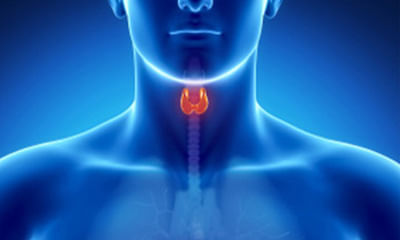Get the App
For Doctors
Login/Sign-up
About
Health Feed
AllQ&AsTipsQuizzes
Cipladine 5% Powder Health Feed
Asked for male, 27 years old from Mumbai
Share
Bookmark
Report
Hashimoto's thyroiditis is an autoimmune disease, a disorder in which the immune system turns against the body's own tissues. In people with hashimoto's, the immune system attacks the thyroid. This can lead to hypothyroidism, a condition in which the thyroid does not make enough hormones for the body's needs.
There is no cure for hashimoto's, but replacing hormones with medication can regulate hormone levels and restore your normal metabolism.
Yes, iodine may help.
There is no cure for hashimoto's, but replacing hormones with medication can regulate hormone levels and restore your normal metabolism.
Yes, iodine may help.
106 people found this helpful
Asked for Female, 38 years old from Hyderabad
Share
Bookmark
Report
Asked for male, 59 years old from Delhi
Share
Bookmark
Report
MBBS, CCEBDM, Diploma in Diabetology, Di...read more
Endocrinologist•Dharwad
Hi Since you are on treatment with thyroxine 125 mcg tablets, there is no need to do any separate testing. Just take iodinated salt. Since you already have hypothyroidism, the thyroid gland is not functioning optimally. So it hardly matters. All the needs of thyroxine are being met by supplement. You should ensure that TSH level is maintained between 3 to 4 mU/L. If that is not the case then dosage of thyroxine may have to be increased. Thanks.
Asked for male, 30 years old from Hyderabad
Share
Bookmark
Report
Hypothyroidism is a condition in which the thyroid gland is under active and does not produce sufficient amounts of thyroid hormones required in the body. The most cause of hypothyroidism is Hashimoto’s thyroiditis. Hashimoto’s thyroiditis is an auto immune disorder in which the antibodies are produced by the immune system against its own tissue, which in turn attacks the thyroid gland resulting in hypothyroidism.Severe Iodine defficiency can also lead to hypothyroidism . Natural Homeopathic rem...more
33 people found this helpful
Asked for female, 24 years old from Hyderabad
Share
Bookmark
Report
Asked for female, 2 years old from Anantapur
Share
Bookmark
Report
Health Query
Share
Bookmark
Report
Hashimoto's disease is a condition in which your immune system attacks your thyroid, a small gland at the base of your neck below your Adam's apple. The thyroid gland is part of your endocrine system, which produces hormones that coordinate many of your body's functions.
Inflammation from Hashimoto's disease, also known as chronic lymphocytic thyroiditis, often leads to an underactive thyroid gland (hypothyroidism). Hashimoto's disease is the most common cause of hypothyroidism in the United...more
Inflammation from Hashimoto's disease, also known as chronic lymphocytic thyroiditis, often leads to an underactive thyroid gland (hypothyroidism). Hashimoto's disease is the most common cause of hypothyroidism in the United...more
Asked for female, 45 years old from Mapusa
Share
Bookmark
Report
Hypothyroid caused by diminished hormonal availibility will always be kept under control by thyronorm or eltroxin only. Other medicines mentioned have no role. You are supposed to be visiting your doctor periodically, regularly for monitoring tsh levels by blood test and making suitable fixing of dosage of thyronorm life long. There should be no problem.
295 people found this helpful
Health Query
Share
Bookmark
Report
Health Query
Share
Bookmark
Report
MBBS, CCEBDM, Diploma in Diabetology, Di...read more
Endocrinologist•Dharwad
Lybrate-user, hyperthyroidism is treated in the following manner:
1) using anti thyroid drugs like methimazole, carbimazole or propylthiouracil. One of these drugs is given for a period of 18 to 24 months. This causes suppression of thyroid gland. Occasionally after 18 to 24 months normal function returns. Treatment is discontinued. However, in many cases suppression does not occur. Then other options are considered.
2) radio active iodine: this is given in a small dose, absorbed by thyr...more
1) using anti thyroid drugs like methimazole, carbimazole or propylthiouracil. One of these drugs is given for a period of 18 to 24 months. This causes suppression of thyroid gland. Occasionally after 18 to 24 months normal function returns. Treatment is discontinued. However, in many cases suppression does not occur. Then other options are considered.
2) radio active iodine: this is given in a small dose, absorbed by thyr...more
Ask a free question
Get FREE multiple opinions from Doctors
posted anonymously

















